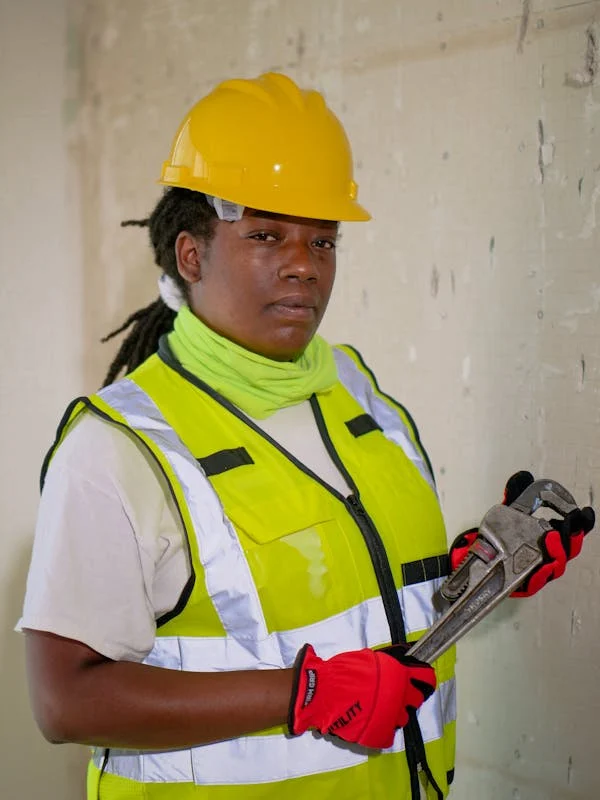The growing prevalence of memory-related conditions worldwide has created an unprecedented demand for specialized healthcare professionals trained in dementia and Alzheimer’s care. As populations age across developed nations, the need for qualified memory care specialists has outpaced local workforce availability, prompting healthcare facilities to establish international recruitment programs that connect skilled professionals with rewarding career opportunities abroad. This comprehensive exploration examines the expanding field of memory care specialization, the international pathways available for qualified professionals, and the transformative impact these programs have on both healthcare delivery and individual career trajectories.
Memory care represents one of the most challenging yet rewarding specializations within healthcare, requiring a unique combination of clinical expertise, emotional intelligence, and innovative approaches to patient care. Professionals who choose this path find themselves at the forefront of a rapidly evolving field where new research constantly shapes treatment approaches and where the human connection remains paramount to quality care. The international dimension of memory care recruitment adds another layer of opportunity, allowing specialists to bring diverse perspectives and culturally informed approaches to facilities seeking to enhance their dementia care programs.
The intersection of global healthcare workforce mobility and the specific demands of memory care creates a dynamic employment landscape that benefits both healthcare providers and international professionals. Facilities gain access to talented specialists who bring fresh perspectives and proven techniques from different healthcare systems, while international workers find pathways to career advancement, professional development, and the opportunity to make meaningful contributions to vulnerable populations in need of specialized care.
Understanding Memory Care Specialization in Healthcare
Memory care specialization encompasses a broad range of clinical competencies, therapeutic interventions, and person-centered approaches designed to support individuals with Alzheimer’s disease, dementia, and other cognitive impairments. Unlike general eldercare or traditional nursing, memory care requires professionals to master specific techniques for communication, behavior management, and creating therapeutic environments that promote dignity and quality of life for residents experiencing cognitive decline.
The role of a memory care specialist extends far beyond basic medical care to encompass psychological support, family education, and the implementation of innovative therapies designed to slow cognitive decline and maintain functional abilities. Specialists in this field must understand the neurological basis of memory disorders, recognize the various stages of cognitive decline, and adapt their approaches to meet each individual’s changing needs. This requires continuous learning and adaptation as new research emerges and best practices evolve.
Professional development in memory care often involves specialized certifications and training programs that go beyond basic healthcare education. Many specialists pursue credentials in dementia care mapping, validation therapy, or specific intervention techniques like the Montessori method for dementia. These additional qualifications not only enhance clinical effectiveness but also make professionals more attractive to international recruiters seeking candidates with demonstrated expertise in evidence-based memory care approaches.
The emotional and psychological demands of memory care work require professionals to develop exceptional resilience and coping strategies. Working with individuals who may not remember interactions from day to day, managing challenging behaviors with compassion, and supporting families through difficult transitions requires a special kind of dedication. International recruitment programs increasingly recognize that professionals who thrive in memory care possess not just technical skills but also personal qualities that enable them to maintain empathy and enthusiasm despite the challenges inherent in this specialization.
Global Demand for Memory Care Professionals
The worldwide increase in dementia cases has created a global healthcare crisis that transcends national borders and cultural boundaries. Current estimates suggest that over 55 million people worldwide live with dementia, with numbers expected to triple by 2050. This exponential growth in demand for specialized care has prompted healthcare systems across developed nations to reassess their workforce strategies and increasingly turn to international recruitment as a viable solution to staffing shortages.
Countries like the United States, United Kingdom, Canada, Australia, and several European nations face particularly acute shortages of memory care specialists. These shortages stem from multiple factors including aging domestic workforces, insufficient training program capacity, and the challenging nature of memory care work that leads to high turnover rates. Rural and suburban areas often experience the most severe shortages, as qualified professionals tend to concentrate in urban centers where specialized facilities and professional development opportunities are more abundant.
The economic implications of memory care workforce shortages extend beyond individual facilities to impact entire healthcare systems and national economies. Inadequate staffing in memory care units leads to increased hospitalizations, higher healthcare costs, and greater burden on family caregivers who must fill gaps in professional care. Governments and healthcare organizations increasingly recognize that international recruitment represents not just a staffing solution but a strategic investment in sustainable healthcare delivery for aging populations.
Cultural attitudes toward aging and dementia care vary significantly across nations, creating opportunities for cross-cultural learning and innovation in memory care approaches. International specialists bring diverse perspectives on family involvement, community integration, and therapeutic interventions that can enrich care programs and improve outcomes for residents. This cultural exchange through international recruitment programs contributes to the evolution of global best practices in memory care.
International Recruitment Programs and Pathways
Healthcare organizations worldwide have developed sophisticated international recruitment programs specifically targeting memory care specialists and related professionals. These programs typically offer comprehensive packages that include visa sponsorship, credential recognition support, relocation assistance, and structured orientation to help international professionals successfully transition into new healthcare systems. Understanding the various pathways and requirements helps qualified professionals navigate opportunities and make informed decisions about international career moves.
Direct recruitment by healthcare facilities represents one of the primary pathways for international memory care specialists. Large healthcare systems, specialized memory care communities, and continuing care retirement facilities often maintain dedicated international recruitment teams that identify, screen, and support qualified candidates throughout the immigration and credentialing process. These direct-hire programs typically offer the most comprehensive support packages and clearest pathways to permanent residency in destination countries.
International recruitment agencies specializing in healthcare placements provide another avenue for memory care professionals seeking opportunities abroad. These agencies maintain relationships with multiple healthcare employers and can match candidates with positions that align with their skills, preferences, and career goals. Reputable agencies handle much of the administrative burden associated with international recruitment, including credential evaluation, visa application assistance, and negotiation of employment terms.
Government-sponsored programs and bilateral agreements between nations create additional opportunities for memory care specialists to work internationally. Programs like the UK’s Health and Care Worker visa, Australia’s Temporary Skill Shortage visa program, and various provincial nominee programs in Canada specifically facilitate healthcare worker immigration. These government-backed initiatives often provide streamlined processing and additional protections for international workers.
Exchange programs and fellowship opportunities offer temporary but valuable international experience for memory care professionals early in their careers or those seeking to enhance their expertise through exposure to different healthcare systems. While these programs may not lead directly to permanent employment, they provide valuable experience and connections that can facilitate future international career moves.
Visa Sponsorship and Immigration Requirements
Navigating immigration requirements represents one of the most complex aspects of international recruitment for memory care specialists. Each destination country maintains specific visa categories, eligibility criteria, and application processes that must be carefully understood and followed. Successful international recruitment depends on both employers and candidates understanding these requirements and working together to ensure compliance throughout the process.
Work visa categories for healthcare professionals typically require demonstration of specialized skills, appropriate education, and professional licensure or certification. Memory care specialists often qualify for skilled worker visas due to the specialized nature of their expertise and the documented shortages in destination countries. Common visa categories include the H-1B and EB-3 visas in the United States, Tier 2 visas in the United Kingdom, and various provincial programs in Canada, each with specific requirements and processing timelines.
Credential evaluation and recognition processes vary significantly between countries but generally require international memory care specialists to demonstrate that their education and training meet local standards. This often involves submitting transcripts, diplomas, and detailed course descriptions to credentialing bodies that assess equivalency. Some countries require additional examinations or supervised practice periods before granting full recognition of international qualifications.
Language proficiency requirements represent a critical component of immigration eligibility for memory care positions. Given the communication-intensive nature of memory care work, destination countries typically require high levels of proficiency in the local language. Standardized tests like IELTS, TOEFL, or OET must be completed with scores meeting specific thresholds. Memory care specialists must demonstrate not just general language proficiency but also familiarity with medical terminology and the ability to communicate effectively with confused or distressed patients.
The timeline for visa processing and immigration can extend from several months to over a year, depending on the specific program and country involved. Factors affecting processing times include visa category, country of origin, completeness of documentation, and current processing backlogs. Successful international recruitment programs build these timelines into their planning and provide support to candidates throughout the waiting period.
Professional Qualifications and Certification Standards
Memory care specialists pursuing international opportunities must understand how their qualifications translate across different healthcare systems and what additional certifications might enhance their eligibility for recruitment programs. The global nature of healthcare has led to increasing standardization in some areas, while significant variations remain in how different countries approach memory care training and certification.
Educational requirements for memory care specialists typically include foundational healthcare training in nursing, occupational therapy, social work, or related fields, supplemented by specialized training in dementia care. International recruitment programs often seek candidates with bachelor’s or associate degrees in healthcare fields, though specific requirements vary based on the role and destination country. Advanced degrees or specialized certifications in gerontology, neuropsychology, or dementia studies significantly enhance candidacy for international positions.
Professional certifications specific to memory care have become increasingly important in demonstrating expertise to international recruiters. Credentials such as Certified Dementia Practitioner (CDP), Certified Alzheimer Disease and Dementia Care Trainer (CADDCT), or nation-specific certifications provide objective evidence of specialized knowledge and commitment to the field. Many international recruitment programs prioritize candidates with multiple certifications that demonstrate both breadth and depth of expertise.
Continuing education requirements in memory care reflect the rapidly evolving nature of the field, with new research constantly informing best practices. International specialists must demonstrate commitment to ongoing professional development through documented continuing education hours, conference attendance, or participation in research projects. Many destination countries require evidence of recent continuing education as part of licensure or registration processes.
Clinical experience requirements for international recruitment typically specify minimum years of direct memory care experience, with many programs seeking specialists with at least two to three years of hands-on experience in dementia care settings. Experience with specific populations, such as early-onset dementia or advanced Alzheimer’s disease, may be particularly valued. Documentation of clinical experience through detailed reference letters and employment verification becomes crucial in the recruitment process.
Compensation Packages and Benefits Structure
Understanding compensation structures for internationally recruited memory care specialists helps professionals evaluate opportunities and negotiate fair employment terms. Compensation packages for international recruits typically extend beyond base salaries to include various benefits and allowances that recognize the additional challenges and costs associated with international relocation.
Base salary ranges for memory care specialists vary significantly based on destination country, specific location within countries, facility type, and individual qualifications. In the United States, memory care specialists can expect annual salaries ranging from $45,000 to $75,000, with specialized roles and experienced professionals commanding higher compensation. The United Kingdom offers ranges from £25,000 to £40,000, while Canadian positions typically offer CAD 50,000 to CAD 70,000. Australian positions often provide AUD 60,000 to AUD 85,000 annually.
Cost of living adjustments and location-based differentials significantly impact the real value of compensation packages. Urban centers typically offer higher nominal salaries that may be offset by increased housing and living costs, while rural positions might provide lower base salaries supplemented by housing allowances or subsidized accommodation. International specialists must carefully evaluate total compensation in the context of local living costs and quality of life factors.
Relocation support represents a crucial component of international recruitment packages, often including airfare for the specialist and immediate family members, temporary accommodation upon arrival, shipping allowances for personal belongings, and assistance with practical matters like banking and driver’s license acquisition. Comprehensive relocation packages can represent thousands of dollars in value and significantly ease the transition to a new country.
Immigration support, including visa sponsorship fees, legal assistance, and credential evaluation costs, typically forms part of recruitment packages for memory care specialists. Employers committed to international recruitment often cover these substantial costs, which can range from $5,000 to $15,000 depending on the visa category and family situation. Some employers also support permanent residency applications, representing a long-term investment in international staff.
Professional development support through continuing education allowances, conference attendance funding, and certification assistance helps international specialists maintain and enhance their expertise. Many employers recognize that supporting ongoing professional development not only benefits patient care but also aids in retention of valuable international staff members.
Cultural Adaptation and Workplace Integration
Successfully transitioning to memory care practice in a new country requires more than clinical skills and language proficiency; it demands cultural adaptation and understanding of different healthcare systems, workplace cultures, and approaches to dementia care. International recruitment programs increasingly recognize that comprehensive cultural orientation and ongoing support significantly impact the success and retention of international specialists.
Healthcare system orientation must address not just clinical protocols but also documentation requirements, regulatory compliance, and quality assurance processes that may differ significantly from those in specialists’ home countries. Understanding insurance systems, care planning requirements, and interdisciplinary team dynamics in the new environment requires structured training and ongoing support. Many successful programs pair international recruits with experienced mentors who can provide guidance on navigating system complexities.
Cultural differences in approaches to aging, family involvement, and end-of-life care significantly impact memory care practice. International specialists must understand local expectations regarding family participation in care decisions, resident autonomy, and advance directives. What might be standard practice in one culture could be considered inappropriate or even unethical in another, making cultural competency training essential for successful integration.
Workplace communication styles and professional relationships often differ across cultures, affecting how international specialists interact with colleagues, supervisors, and other healthcare professionals. Understanding expectations for assertiveness, hierarchy, and conflict resolution in the workplace helps international professionals navigate professional relationships effectively. Some cultures emphasize direct communication while others value indirect approaches, and successfully adapting to local norms impacts professional success.
Building social connections and community support outside of work significantly impacts international specialists’ overall satisfaction and retention. Successful recruitment programs often facilitate connections with cultural communities, professional associations, and social groups that can provide support during the adaptation period. Many international specialists emphasize the importance of maintaining connections to their home culture while building new relationships in their adopted country.
Career Advancement and Professional Growth Opportunities
International memory care specialists often find that working abroad opens unexpected avenues for career advancement and professional development. The experience of adapting to different healthcare systems, combined with the unique perspectives international professionals bring, can position them for leadership roles and specialized positions that might not have been accessible in their home countries.
Leadership development opportunities in memory care settings often favor professionals who demonstrate cultural competency, adaptability, and innovative thinking—qualities that international specialists develop through their recruitment and adaptation experiences. Many facilities actively seek to diversify their leadership teams, recognizing that international perspectives can drive innovation and improve culturally responsive care delivery. International specialists who successfully navigate initial challenges often find accelerated pathways to supervisory, management, or program development roles.
Specialization within memory care offers additional advancement opportunities for international professionals. Developing expertise in specific areas such as young-onset dementia, Lewy body dementia, or behavioral intervention strategies can position specialists as valuable resources within their organizations. International specialists who pursue additional certifications or training in specialized areas often become go-to experts, leading training programs and mentoring other staff members.
Academic and research opportunities may emerge for international memory care specialists interested in contributing to the evidence base for dementia care. Many academic medical centers and research-focused facilities value the diverse perspectives international professionals bring to research questions and study design. Participation in research projects, publication opportunities, and conference presentations can enhance professional profiles and open doors to academic appointments or consulting roles.
Entrepreneurial opportunities in memory care services have expanded with growing recognition of diverse community needs and approaches to dementia care. International specialists who identify gaps in services for specific cultural communities or bring innovative care models from their home countries may find opportunities to develop new programs or services. Some international professionals successfully transition from clinical roles to consulting, training, or program development positions that leverage their unique expertise.
Technology and Innovation in Memory Care Recruitment
The integration of technology into both memory care practice and international recruitment processes has transformed how facilities identify, recruit, and support international specialists. Digital platforms, virtual reality training, and telehealth capabilities have created new possibilities for connecting qualified professionals with opportunities regardless of geographic barriers.
Virtual recruitment and interview processes have become standard practice, allowing facilities to efficiently screen and interview international candidates without the cost and complexity of international travel. Video interviews enable assessment of communication skills and clinical knowledge while virtual facility tours help candidates understand work environments before committing to relocation. These technological solutions have democratized access to international opportunities for specialists who might not have been able to participate in traditional recruitment processes.
Digital credentialing and verification systems have streamlined the documentation and verification processes essential to international recruitment. Blockchain-based credential verification, digital portfolio platforms, and automated background check systems reduce processing times and increase confidence in credential authenticity. These technological advances particularly benefit memory care specialists from countries where traditional paper-based verification processes might be slow or unreliable.
Online training and orientation programs enable international specialists to begin preparing for their new roles before physical relocation. Virtual reality simulations of memory care environments, online cultural competency training, and digital mentorship programs help international recruits develop familiarity with their new work settings and care approaches. This pre-arrival preparation significantly smooths the transition period and accelerates time to full productivity.
Telehealth and remote consultation capabilities have created new models for international collaboration in memory care without requiring permanent relocation. Some programs now offer hybrid models where international specialists provide remote consultation and training while maintaining residence in their home countries. These innovative approaches expand access to international expertise while reducing barriers associated with traditional immigration.
Challenges and Solutions in International Memory Care Recruitment
While international recruitment offers significant benefits for addressing memory care workforce shortages, various challenges must be acknowledged and addressed for programs to succeed. Understanding common obstacles and proven solutions helps both recruiters and candidates navigate the complex landscape of international healthcare employment.
Regulatory barriers and inconsistent recognition of international qualifications across jurisdictions create significant challenges for memory care recruitment. Different countries and even regions within countries maintain varying standards for education, training, and certification requirements. Successful programs work closely with regulatory bodies to establish clear pathways for credential recognition and advocate for reasonable equivalency standards that maintain quality while recognizing international expertise.
Cultural and language barriers can impact initial integration and care quality if not properly addressed through comprehensive support programs. While language proficiency tests provide baseline assurance of communication abilities, the nuanced communication required in memory care—including understanding of colloquialisms, non-verbal cues, and cultural references—requires ongoing support and development. Successful programs provide language coaching, cultural mentorship, and ongoing communication skills development.
Family separation and social isolation represent significant personal challenges for international memory care specialists that can impact job satisfaction and retention. Being separated from family and support networks while managing the emotional demands of memory care work can lead to burnout and early departure from positions. Programs that facilitate family reunification, provide robust social support, and acknowledge the unique challenges of international workers show better retention rates.
Financial pressures associated with international relocation, including debt from education in home countries, supporting family members abroad, and establishing financial stability in new countries, create stress for international specialists. Comprehensive compensation packages that acknowledge these additional financial pressures, along with financial counseling and support services, help international workers achieve stability and focus on their professional development.
Future Trends and Opportunities in Global Memory Care Staffing
The landscape of international memory care recruitment continues to evolve in response to demographic trends, technological advances, and changing perspectives on global healthcare workforce mobility. Understanding emerging trends helps both facilities and professionals position themselves for future opportunities in this dynamic field.
Demographic projections indicate that demand for memory care specialists will continue to accelerate globally, with particularly acute needs in countries experiencing rapid population aging. Asian countries like Japan, South Korea, and Singapore are emerging as new destinations for international memory care specialists, offering unique opportunities for professionals interested in working in technologically advanced healthcare systems with different cultural approaches to aging.
Standardization of international credentials and mutual recognition agreements between countries promise to simplify international recruitment processes. Initiatives to establish global competency standards for memory care specialists and reciprocal recognition of qualifications could significantly reduce barriers to international mobility for qualified professionals. These developments would benefit both recruiting facilities and international specialists by streamlining credentialing processes.
Innovation in care delivery models, including the integration of artificial intelligence, robotics, and sensor technology in memory care environments, creates demand for specialists comfortable with technology-enhanced care delivery. International specialists who combine traditional memory care expertise with technological fluency will be particularly valuable as facilities adopt innovative approaches to managing increasing resident numbers with limited human resources.
Climate migration and global health security concerns are reshaping patterns of international healthcare workforce movement. Memory care specialists may increasingly find opportunities in regions less affected by climate change or in countries investing heavily in healthcare infrastructure to ensure pandemic preparedness. Understanding these macro-level trends helps professionals make strategic decisions about international career moves.
The growing emphasis on culturally specific memory care programs creates unique opportunities for international specialists to serve diaspora communities in their adopted countries. Facilities recognizing the importance of culturally appropriate care for diverse resident populations actively seek international specialists who can bridge cultural and linguistic gaps. This trend toward culturally responsive care models values the unique contributions of international professionals beyond simply filling staffing gaps.
Conclusion
International recruitment programs for memory care specialists represent a critical strategy for addressing the global challenge of providing quality care for individuals with dementia and related conditions. These programs create mutually beneficial opportunities that address workforce shortages while providing skilled professionals with pathways to career advancement and personal growth. As the demand for specialized memory care continues to grow worldwide, international recruitment will play an increasingly important role in ensuring that vulnerable populations receive the compassionate, skilled care they deserve.
For memory care specialists considering international opportunities, the landscape offers diverse pathways to rewarding careers in countries actively seeking their expertise. Success in international recruitment requires careful preparation, including credential evaluation, language proficiency development, and cultural adaptation readiness. However, the investment in meeting these requirements opens doors to professional experiences that can transform careers and personal lives while making meaningful contributions to global healthcare delivery.
Healthcare facilities and systems implementing international recruitment programs must recognize that success extends beyond simply filling vacant positions. Comprehensive support for international specialists, including robust orientation programs, cultural integration assistance, and career development opportunities, ensures that international recruitment becomes a sustainable solution to workforce challenges rather than a temporary fix. The most successful programs view international specialists as valuable assets who bring unique perspectives and skills that enhance overall care quality.
The evolution of memory care as a specialized field, combined with increasing global workforce mobility, suggests that international recruitment will remain a vital component of healthcare workforce strategies for the foreseeable future. As technology continues to facilitate connections across borders and standardization efforts reduce regulatory barriers, opportunities for international memory care specialists will likely expand and diversify.
Looking ahead, the intersection of demographic trends, technological innovation, and evolving care models will create new opportunities and challenges for international memory care recruitment. Facilities and professionals who adapt to these changes, embrace innovation, and maintain focus on person-centered care will be best positioned to succeed in this dynamic environment. The global nature of the dementia crisis requires global solutions, and international recruitment programs for memory care specialists represent an essential piece of the puzzle.
The personal and professional journeys of international memory care specialists demonstrate that crossing borders for healthcare careers involves more than employment changes; it represents an opportunity to contribute to a global effort to improve care for some of society’s most vulnerable members. As these programs continue to evolve and mature, they will play an increasingly important role in shaping the future of memory care delivery worldwide, ensuring that quality, compassionate care transcends national boundaries and cultural differences.








